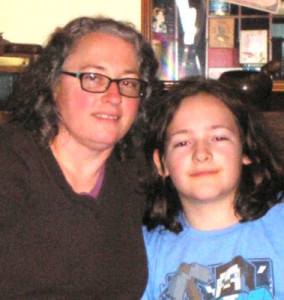Office of Civil Rights Says School District Discriminated Against Autistic Student- nine-year-old was held face down and kept in seclusion
Aug 12, 2016
By Ken Epstein
The U.S. Department of Education’s Office of Civil Rights (OCR) has found that the Oakland Unified School District discriminated against a nine-year-old student with autism, placing him at a private special education school where he was repeatedly held face down and kept in seclusion.
In the 11 months that Stuart Candell attended Anova Center for Education in Concord, he was restrained 92 times, held face down for up to an hour and a half at a time.

OCR’s investigation found that OUSD knew about but did little to address the excessive use of prone restraint.
Under a resolution agreement with OCR, Oakland Unified agreed to no longer send students to private special education schools that use prone restraints on district students and to hire an expert to teach staff positive behavior intervention and train staff on the harmful effects of restraint and seclusion.
“I am thrilled with OCR’s decision,” said Bonnie Candell, mother of Stuart, who is now 12 years old.
“I saw how being restrained negatively affected my son, caused him to cry and have suicidal thoughts,” she said. “I am happy that other Oakland kids will not have to go through what my son did. “
According to the school district’s statement on the settlement. “After collaborating directly with (OCR), OUSD is actively complying with the terms of the resolution, which OUSD and OCR believe will positively impact OUSD’s students with special needs who are placed in non-public schools.”
OUSD has also agreed to hire an outside trauma expert to provide Stuart with mental health treatment to deal with the consequences of his mistreatment, as well as compensatory services and tutoring.

Anova operates three campuses in the Bay Area. There are no OUSD students currently at the Concord campus, but there are a few district students at a different Anova campus.
In a statement on Aug. 4, Anova said the OCR investigation report was not a public document and that the school had not received a copy. “Once available, we will carefully consider the findings of the report,” the statement said.
When OUSD placed Stuart at Anova Center in 2013, with the consent of his parents, he was described as an intellectually gifted student with autism, anxiety and attention deficit hyperactivity disorder.
Anova specializes in managing the behavior of high functioning children with autism.
June 24, federal investigators found that the school did follow the student’s Individualized Education Program (IED) but “utilized Anova´s own methods of behavior modification, which Anova used on all of its students.”
Over the child’s 11 months at the school, staff held him face down 92 times for a total of 2,200 minutes. The longest time he was held down 93 minutes, and the average duration was 29 minutes.
He was held in a resource room that had no furniture, only a mat. “There were no windows that let in natural light and only one small window in the door to the room,” the letter said.
The reasons the student was restrained included “not following directions,”“pushing desks” ripping up assignments,” “too much silly” and “non-compliance,” the letter said.
Once in the resource room, a child would be held down until he demonstrated “ a calm body and quiet voice.”
Staff held the student face down and pressed his arms and legs down into a mat on the floor, the letter said. Usually two alternating staff members would cup their hands over the long bones of the student, “pressing their fingertips into the mat to maintain the hold.”
Until the student became sufficiently calm, he would not be allowed to use the restroom or have a break for food in water.
“Anova staff acknowledged that the student would spend most of the school day in the resource room, and the student was out of the classroom more often than in the classroom,” according to the OCR letter.
Suge Lee, Attorney for Disability Rights California, the agency that filed the OCR complaint on behalf of the family, said that when she talked to Stuart, he remembers “how horrible (the experience) was” at the school.
He is pleased, however, “that he has made some difference” for other children, she said.
When Bonnie Candell approached the legal agency seeking help, said Lee, “It was clear that something and inappropriate and unacceptable was happening.. We represented the family to get a placement where Stuart wasn’t going to be subjected to this treatment. “
According to Lee, “Stuart would come home saying they were holding him down, that his arm hurt and his chest hurt. When the mom talked to the school and the district, she was reassured that this program was going to work, but it was going to get worse before it got to better.”
Lee explained why Stuart’s mom was reluctant to complain at first. “When you have a kid whose has a serious behavior (issues), and has been removed form several schools, you feel your choices are limited and you want to put your faith in someone.” Lee said.
According to Lee, prone physical restraint of students is legal in California and other some other students and Disability Rights California is working to change the law.